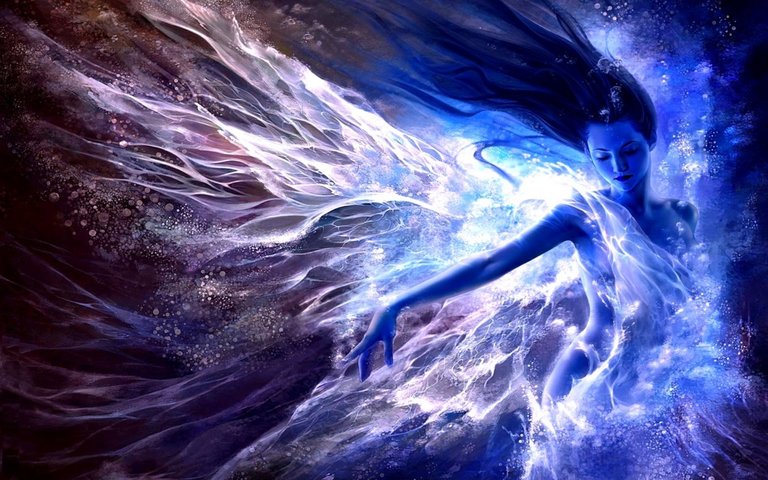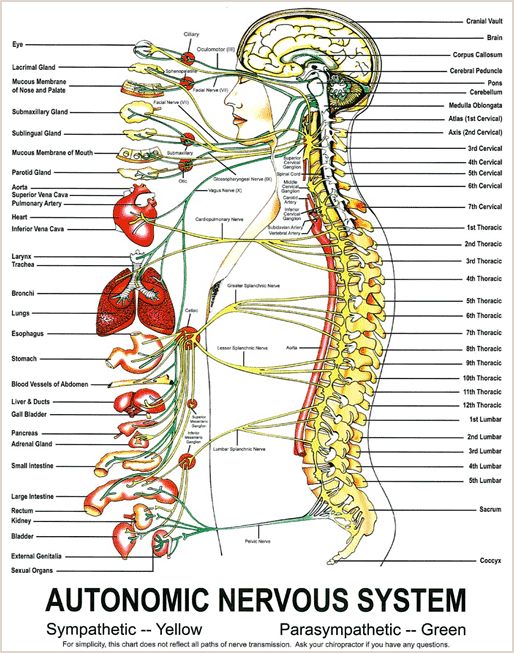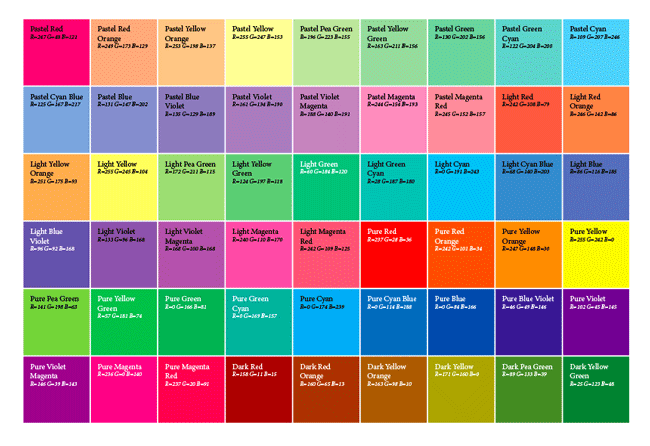The Hidden World Beyond Language

Have you ever put any thought into the fact that you only talk about and only could ever talk about things that have words? On the surface, this may seem obvious and even silly, but isn’t it interesting how many things we don't communicate simply because we don’t have the proper words to express them? A tree doesn’t stop being a tree if you don’t know what it’s called, but the likeliness of you being about to pass along meaningful information about it without the privilege of being able to point towards it, dwindles. Much like humans, animals create utterances all the time, but how we differ is in the complexity of our thoughts relating to abstract ideas and things that aren’t present. Several animals create sounds that can alert members of their group if there is a danger approaching, but to our knowledge, no other animal aside from humans can communicate hypothetical situations because their utterances don’t allow for it.

Prairie dogs are not only highly intelligent, empathetic, and social animals, but they also have one of the most elaborate languages that we’ve decoded. When a snake approaches their clan, a scout will sound the alarm by emitting a highly pitched and complex squeak to inform the rest that there is a potential threat. As soon as the others hear the warning, they immediately know what strategy to employ, because each tone that the scout makes, is a wealth of information. Dr. Con Slobodchikoff, who has been studying prairie dogs for over 35 years, has found out that not only does each threat have its own associated “chee,” (the sound he says they make that sounds like a squeak toy,) but that within those sounds, lies a vast of amount of information about that threat. When the snake is sighted, within just a few moments, every prairie dog knows where it is, what it is, and what it looks like. As Slobodchikoff found out through his research, prairie dogs have a good understanding of, and can communicate well, an object’s position, color, shape, size, and species within a single chirp and with precision.

Even when researchers tried to trick them, they could detect the difference between a coyote and a domestic dog, spite their similarities. They are marvelous communicators in the sense that they can pass along more information in less time than we can, but one thing that prairie dogs can’t do is talk about this very phenomenon. They can talk about a threat, but they can’t talk about how they are talking about a threat. From what we can tell, their language only goes one level deep, whereas our language can go infinitely deep, well into abstraction. Animal, such as the prairie dog can observe their surroundings and give their opinions about it and communicate their desires, but what they lack, is the ability to extrapolate upon it and hypothesize the meaning behind it. Animals think, but we can think about thinking which is debatably one of our greatest advantages.

The reason that this deeper level of thinking is so important, is because it gives us an understanding about why the world operates the way it does. Words are our connection with that understanding and the words we have at our disposal determines the depth at which we can communicate what we understand. Words however, are sparse and can’t meaningfully exist at every level we can think because just like how an animal can’t talk about talking, we don’t have a system that can effectively communicate everything we experience, strictly through words.
As most people understand it, the somatic nervous system is the part of our anatomy that we can control, while the autonomic nervous system is the part we can’t. It’s easy to see that we have control over the movement of our appendages, but the heart has always been considered off limits. Yoga masters have often made claims that they have the ability to regulate their heart beat through focus on the breath. They found that as they breathed rhythmically and deliberately, their pulse could slow down significantly. Up until recently, this baffled scientists. It didn’t make sense to be able to control something that is happens without your awareness, but that’s just it; by having something to direct their mind to that they had control over and knowing how it affected something they couldn’t control directly, the Yogis had inadvertently created a bridge over the gap of what had been deemed “uncontrollable.” Through practice, the control over their breathing that eventually slowed down their heart rate, shifted to direct control over an element of their autonomic nervous system. By becoming familiar with the changes in their body and how it felt, they were able to focus on those changes instead of just their breathing. Once they got efficient at identifying how it felt to have a slower heart rate, they could train themselves to call forth that state with nothing more than their will to do so.

Even though anyone can accomplish the same effects as the Yogis, there isn’t much that can be said about how to do it. You can be told to focus on your breath and observe how it feels traveling throughout your body, but the actual feeling of how it influences your heart rate cannot be taught through words. It can be described and explained to the best of someone’s ability, but the skill itself is learned purely through experience. This is an example of one out of an infinitely long list of things that we are capable of doing and understanding, but nonetheless can’t share with other people by using our vocabulary. By not having a word for those things, we don’t have place to put our attention towards so that it can become part of our awareness. This means that there is a massive part of our reality that we can’t interact with, simply because we don’t have anything to direct our attention to. These things exist, but do so, unnoticed. Is it much of a surprise then that what we don’t have in our vocabulary and we haven’t learned through experiences, are invisible to us in plain sight?
The Himba

The Himba people are an indigenous tribe with an estimated population of about 50,000 individuals who currently live in Namibia, Africa. Their culture is still based around hunting, gathering and feeding off of the land. They are not a highly modern society, but they are still very effective nonetheless. One interesting fact about the Himba people according to a British Broadcast Company (BBC) documentary, "Do You See What I See?" is that they aren’t capable of seeing the color blue which coincidentally isn't a color that they have a name for. Of course, you wouldn't have a name for a color you couldn't see, but scientists believe it's because they don't have a name for blue, that causes them to become blind to it.
Correlation doesn't always mean causation, but with one test done on that documentary, illustrates how members of the Himba tribe struggle to differentiate between several similar shades of green and one distinct light blue color. The footages shows them in front of a computer with 12 different squares displayed in a ridged circle arrangement. All of those colors are green except for the one, which to us, would look like a completely different color of blue. For the Himba people however, each one of the squares appear too similar to quickly identify which one was different. When however, that same arrangement presented 12 green squares with the odd man out being a different shade of green, the Himba people had no problem identifying which one was not like the other. The fascinating thing about that test was that the distinction between the green and the slightly different green was such a minor difference, it would take the rest of us several minutes of staring at the screen to figure out what the correct answer was, and even then, most non-Himba people still get it incorrect. The reason? Scientists believe it's how they categorize their colors, which alters what they have become attuned to seeing. They have multiple ways of identifying green, for example, but lump what we call "blue" into a pile of other colors.

It's hard to say exactly how differently the Himba people see colors from how we see them, but based on the results of the test, it's safe to say that they have different priorities when it comes to how they determine one color from another. Colors differ based around their hues, brightness, and saturation, but where we draw the line isn't an exact science. For instance, "pink" to some, is its own color, whereas to others, it's just one of the many shades of red. You may lump light and dark blue together into the same category, but in Russia, those colors would be called "goluboy" and “siniy” and are considered independent colors, not just different shades. What about turquoise and teal? You could have a room full of people and ask them if either one is more of a shade of blue or green, but your responses will be all over the place. It really would depend on how many different distinctions you made along the rainbow spectrum and how you personally decide to create the separation of those lines.
We all might see colors a bit differently and depending on where you live in the world, could determine how many colors are in your personal swatch. If you can't distinguish the difference between crimson and ruby, it’s doubtful that anyone short of a painter or a color snob would give you a hard time. The colors that were presented to the Himba people in the test however, were very different and should be easy enough to distinguish from one another. Would it make sense that not having a word for something could make you blind to it? I suppose that would depend on how much our language influences what we see.

Words are powerful tools that allow us to communicate with other people about elements of life. Each one attempts to capture the essence of an idea and wraps it into an intangible form that we then manipulate in attempt to express what we see, how we feel, and what we believe. We organize them into sentences to string ideas together and silently hope that when we deliver our messages to others that they will interpret them as we intended. This is a pretty straightforward idea because people have been communicating this way for a long time, but one element that doesn't always get considered is the voids between two individuals as well as the voids between a word and the unconsidered.

Supposedly, Chomsky's idea of innate language, the law of recursion, is currently being refuted! Will post when i find specifics. Language is freaking awesome thanks for this
Ha, honestly, I believe that people have been refuting it for quiet some time now. I was reading something about it a few years ago. It's really just a bunch of people with different opinions in the end of the day.
I always think of this clip from Waking Life when talking about language,
But yeah there is some specific guy with a cool new theory that my dad was blabbing about, I forgot to ask him this morning! will get back to you. check out Waking Life if you never seen it, thats just a 2 min clip to get a feel
Yeah, this is pretty cool. I wouldn't mind checking it out further.
thanks!
Oh weird looks like half my comment before the video got deleted somehow...I was just saying how this clip comes to mind whenever it comes to language and now I am realizing that this movie does a killer job creating intriguing discussions for EVERY single topic it touches on. It's just great. I remember one scene making a group of my friends and I pause it for at least an hour to analyze what free-will is and whether we have it or not. It's been years but with all this talk I've decided to watch it again tonight!
I swear I purchased it before, of course I want to support projects like this, but for convenience sake we are blessed to have high quality free streams. I found the full movie here: http://www.dailymotion.com/video/xhalb0. Let me know if you get to enjoy! Hell we could do a steemit post for each scene and we'll become rich! haha
You know what, I've actually seen a lot of data suggesting that we don't have any free will... but, to be fair, it really is moot. regardless to the fact, we still view the world as if we do have free will which is a comforting gesture.
Congratulations, your post received 5.56% up vote form @spydo courtesy of @thegreatlife! I hope, my gratitude will help you getting more visibility.
You can also earn by making delegation. Click here to delegate to @spydo and earn 95% daily reward payout! Follow this link to know more about delegation benefits.
Release the Kraken! You got a 36.63% upvote from @seakraken courtesy of @thegreatlife!
You got a 4.24% upvote from @upmyvote courtesy of @thegreatlife!
If you believe this post is spam or abuse, please report it to our Discord #abuse channel.
If you want to support our Curation Digest or our Spam & Abuse prevention efforts, please vote @themarkymark as witness.
You got a 18.29% upvote from @ipromote courtesy of @thegreatlife!
If you believe this post is spam or abuse, please report it to our Discord #abuse channel.
If you want to support our Curation Digest or our Spam & Abuse prevention efforts, please vote @themarkymark as witness.
Thank you!